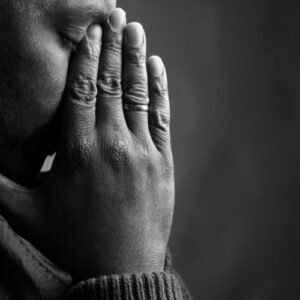Dreams have long fascinated humans, and their significance has been a subject of speculation and interpretation across cultures and generations. People have experienced various types of dreams, including those involving deceased loved ones. Dreaming of a dead person alive can be both perplexing and emotionally charged. In this article, we will explore the possible meanings behind such dreams, their cultural and psychological implications, and ways to cope with their emotional impact.
The Significance of Dreams

Dreams have captivated human imagination since ancient times. They are viewed as a portal to the subconscious mind, where thoughts, emotions, and memories intertwine to create a unique tapestry of experiences. Although dreams can be surreal and bizarre, they often carry hidden messages and insights about our waking lives.
Dreams and the Subconscious Mind
The human mind is a complex web of conscious and unconscious processes. Dreams are believed to be a window into the unconscious, allowing us to process repressed emotions and unresolved issues. Some psychologists suggest that dreams serve as a coping mechanism, helping individuals deal with their fears, anxieties, and grief.
Common Dream Themes

Dreams can take many forms, reflecting the myriad aspects of our lives and emotions. One common dream theme is encountering deceased loved ones, which can evoke a range of emotions and raise questions about the nature of these dreams.
Dreaming of a Dead Person Alive: What Does It Mean?
When someone dreams of a dead person appearing alive, several possible interpretations can shed light on the dream’s significance. These interpretations are not mutually exclusive, and different individuals may experience varied meanings.
Here are some potential interpretations.
The Symbolism of the Deceased
In dreams, the presence of a deceased person may carry symbolic significance rather than representing the actual return of the dead. The dream realm often uses symbols to communicate with our conscious selves. Dreaming of a dead person alive could symbolize unresolved emotions, lingering memories, or unfinished business with the deceased individual.
Communication with the Spiritual Realm

Many cultures and belief systems consider dreams as a means of communication between the living and the spiritual realm. Dreaming of a dead person alive might be interpreted as an attempt by the deceased to convey a message, offer guidance, or seek closure. Such dreams can be deeply profound and may leave a lasting impact on those who experience them.
The Subconscious Mind at Play
Dreams are intricately connected to our subconscious minds, where thoughts, feelings, and memories intertwine. Dreaming of a dead person alive could be a manifestation of the dreamer’s desires, regrets, or unresolved emotions related to the departed. It may offer an opportunity for the dreamer to confront and process these emotions in a safe and surreal environment.
Seeking Resolution and Closure
The human mind often grapples with unresolved issues, particularly in the aftermath of losing someone close. Dreaming of a dead person alive might indicate the dreamer’s subconscious yearning for closure or a desire to resolve unfinished matters with the deceased. These dreams could serve as a conduit for emotional healing and acceptance.
Facing Mortality and Loss

Mortality is an undeniable aspect of the human experience, and dreaming of a dead person alive can be a stark reminder of our mortality and the impermanence of life. Such dreams may arise during times of grief or significant life changes, serving as a way for the mind to process feelings of loss and come to terms with the transient nature of existence.
Analyzing Personal Relationships
Our dreams often reflect our emotional landscape and the dynamics of our relationships. Dreaming of a dead person alive might involve an examination of the dreamer’s past interactions with the deceased individual, prompting introspection and self-awareness regarding the bond they shared.
Cultural and Spiritual Beliefs
Different cultures and spiritual traditions have diverse beliefs and interpretations about dreams involving deceased individuals. Some cultures view such dreams as a sign of impending doom, while others see them as messages of protection or divine intervention. Understanding these cultural perspectives can provide valuable insights into the dream’s meaning.
Metaphorical Representations

Dreams frequently rely on metaphors and symbolism to convey messages. Dreaming of a dead person alive might not be a literal depiction, but rather a metaphorical representation of the dreamer’s emotions, aspirations, or challenges. Analyzing these symbolic representations can offer profound insights into the dream’s underlying meaning.
Cultural and Religious Perspectives on Dreaming of the Dead

The significance of dreams involving deceased individuals is not limited to modern psychological interpretations. Throughout history, different cultures and religions have attributed varying meanings to such dreams.
Ancient Beliefs and Practices
In ancient civilizations, dreams were often regarded as messages from the divine or ancestors. People believed that the deceased could communicate with the living through dreams, offering guidance or warnings. Dream interpreters played crucial roles in societies, deciphering dream symbols and providing insights into the dreamer’s life.
Modern Interpretations
In contemporary times, as societies became more scientifically oriented, the interpretation of dreams shifted. Many people now view dreams as reflections of the dreamer’s psyche and subconscious thoughts, rather than messages from supernatural entities.
Coping with Dreams of Deceased Loved Ones

Dreams of deceased loved ones can be emotionally intense, triggering a wide range of responses from comfort to distress. Coping with these dreams involves acknowledging and embracing the experience while finding healthy ways to process the emotions they evoke.
Embracing the Experience
Rather than dismissing such dreams as mere illusions, individuals can embrace them as opportunities for self-discovery and emotional healing. Accepting that dreams are a natural part of the human experience can help reduce anxiety about their recurrence.
Seeking Support and Understanding
Discussing these dreams with trusted friends, family, or support groups can provide comfort and understanding. Connecting with others who have had similar experiences can validate the emotional impact of such dreams and offer valuable insights.
Rituals and Practices for Healing
Some cultures engage in rituals or ceremonies to honor deceased loved ones and facilitate healing from grief. Lighting candles, setting up altars, or performing prayers can be meaningful ways to cope with the emotions stirred by these dreams.
Science and Psychology of Dream Interpretation

While dreams hold deep emotional significance for individuals, scientific and psychological approaches to dream analysis offer valuable insights into their workings.
Dream Analysis
Dream analysis involves exploring the symbolism and themes present in dreams to understand their potential meanings. By identifying recurring patterns and emotions in dreams, individuals can gain insights into their subconscious thoughts and emotions.
Freudian Perspective
Sigmund Freud, the father of psychoanalysis, believed that dreams were expressions of repressed desires and unconscious thoughts. According to Freud, dreams provided a safe space for the mind to explore forbidden or hidden desires that were suppressed during wakefulness.
Jungian Approach
Carl Jung, another influential psychologist, proposed that dreams served a compensatory function, balancing the conscious and unconscious aspects of the psyche. He suggested that dreams could help individuals integrate unacknowledged parts of themselves.
Cognitive and Neurological Aspects
Recent advancements in neuroscience have shed light on the brain’s activity during sleep and dreams. Dreams are thought to be influenced by neural processes that consolidate memories and emotions, potentially aiding in emotional regulation.
Understanding the Mind-Body Connection

The mind-body connection plays a significant role in how dreams are experienced and interpreted. The complex interplay between memory, emotion, and neural processes contributes to the formation of dream content.
The Role of Memory and Emotion
Memories and emotions are intertwined in dreams, giving rise to vivid and emotionally charged experiences. Dreams involving deceased individuals may be shaped by the dreamer’s memories of the person and the emotions associated with them.
Neural Processes During Sleep
During sleep, the brain undergoes various stages, including rapid eye movement (REM) sleep, where most dreaming occurs. This stage is linked to emotional processing and memory consolidation, making it a critical phase for dream experiences.
The Role of Dreams in Processing Emotions
Some researchers propose that dreams serve as a mechanism for emotional processing and resolution. Dreams involving deceased loved ones may be a way for the mind to process grief and find solace.
Dealing with Grief and Loss
Dreams of deceased loved ones can evoke powerful emotions, particularly in the context of grief and loss. Coping with these dreams involves navigating the mourning process and finding healthy ways to address and manage grief.
The Mourning Process
Grief is a natural response to loss, and the mourning process is unique to each individual. Dreams can be a part of this process, allowing individuals to process their feelings and emotions surrounding the loss.
Healthy Ways to Cope with Loss
Finding healthy coping mechanisms is essential in the healing journey. Engaging in activities that bring comfort and support, such as talking to friends or seeking professional counseling, can aid in the grieving process.
Professional Help and Therapy
In some cases, the emotional impact of dreams involving deceased individuals may be overwhelming. Seeking the guidance of a mental health professional can provide valuable support in navigating complex emotions.
Tips for Enhancing Dream Clarity and Recall
For those who are intrigued by their dreams and wish to explore their subconscious further, there are techniques to enhance dream clarity and recall.
Keeping a Dream Journal
Maintaining a dream journal can help individuals remember their dreams more vividly and identify recurring themes or symbols. Writing down dreams immediately upon waking can capture details that might otherwise be forgotten.
Setting Intentions Before Sleep
Setting an intention to remember dreams before sleep can program the mind to be more receptive to dream recall. By consciously inviting dreams into one’s awareness, the dreamer may be more likely to remember them upon waking.
Meditation and Mindfulness
Practicing meditation and mindfulness during waking hours can help individuals become more in tune with their thoughts and emotions, potentially enhancing dream experiences.
The Phenomenon of Lucid Dreaming
Lucid dreaming, a state where the dreamer becomes aware they are dreaming, can be a fascinating aspect of dreaming.
Definition and Benefits
In a lucid dream, individuals are conscious that they are dreaming and may have some control over the dream’s content. Lucid dreaming can offer unique opportunities for self-exploration and adventure within the dream world.
Techniques for Lucid Dreaming
Various techniques, such as reality checks, keeping a dream journal, and setting intentions, can increase the likelihood of experiencing lucid dreams.
Exploring Lucid Dreams about Deceased Individuals
Lucid dreams about deceased loved ones may provide individuals with a chance to engage with their memories or have conversations that feel emotionally meaningful.
Other Types of Dreams about the Dead
Beyond dreams of deceased loved ones coming back to life, other dream themes involving the deceased are common.
Nightmares and Anxiety Dreams
Dreams that evoke fear, anxiety, or distress can be unsettling. These dreams may stem from unresolved traumas or subconscious worries.
Comforting Dreams
On the other hand, some dreams about the deceased can offer comfort and reassurance. These dreams may provide a sense of peace and closure to the dreamer.
FAQs
- Q: Are dreams of a dead person alive real messages from the afterlife? A: The interpretation of such dreams varies across cultures and beliefs. While some view them as genuine messages, others see them as reflections of the dreamer’s subconscious thoughts and emotions.
- Q: Why do these dreams feel so real and vivid? A: Vivid dreams often occur during REM (rapid eye movement) sleep, when the brain is highly active. These dreams can trigger intense emotions and feel exceptionally real due to heightened brain activity.
- Q: Can dreaming of a dead person alive bring comfort or closure? A: Yes, these dreams can provide comfort to some individuals by offering a sense of connection with the deceased or a chance to say goodbye, potentially leading to emotional closure.
- Q: Should I be concerned if I frequently experience such dreams? A: Frequent dreaming of a dead person alive may indicate unresolved emotions or issues that could benefit from introspection or professional support.
- Q: Can the meaning of these dreams change over time? A: Yes, the meaning of such dreams can evolve as the dreamer’s emotional state, beliefs, and life circumstances change.
- Q: How can I interpret my dreams more effectively? A: Keeping a dream journal, exploring personal emotions, and studying various dream interpretations can aid in understanding dream symbolism.
Conclusion
Dreaming of a dead person alive is a mysterious and thought-provoking phenomenon that has captivated humans for centuries. Whether these dreams hold symbolic significance, facilitate communication with the spiritual realm, or serve as a medium for emotional healing, they offer a unique window into our subconscious minds.
As we’ve explored the various interpretations and meanings associated with such dreams, it is essential to remember that dream analysis is subjective and deeply personal. The true significance of these dreams may vary from one individual to another, based on their beliefs, experiences, and emotional journey.
Next time you find yourself immersed in such a dream, take a moment to reflect on its potential messages and what your subconscious mind might be trying to convey. Embrace the enigma of these dreams, and they may lead you on a profound journey of self-discovery and understanding.



Leave A Reply